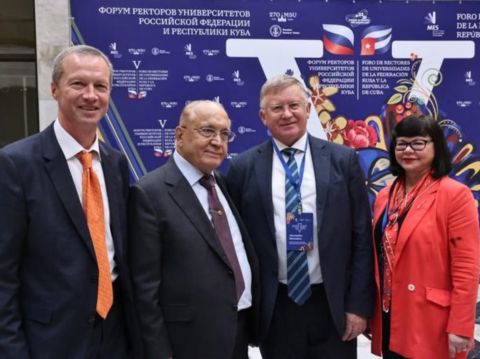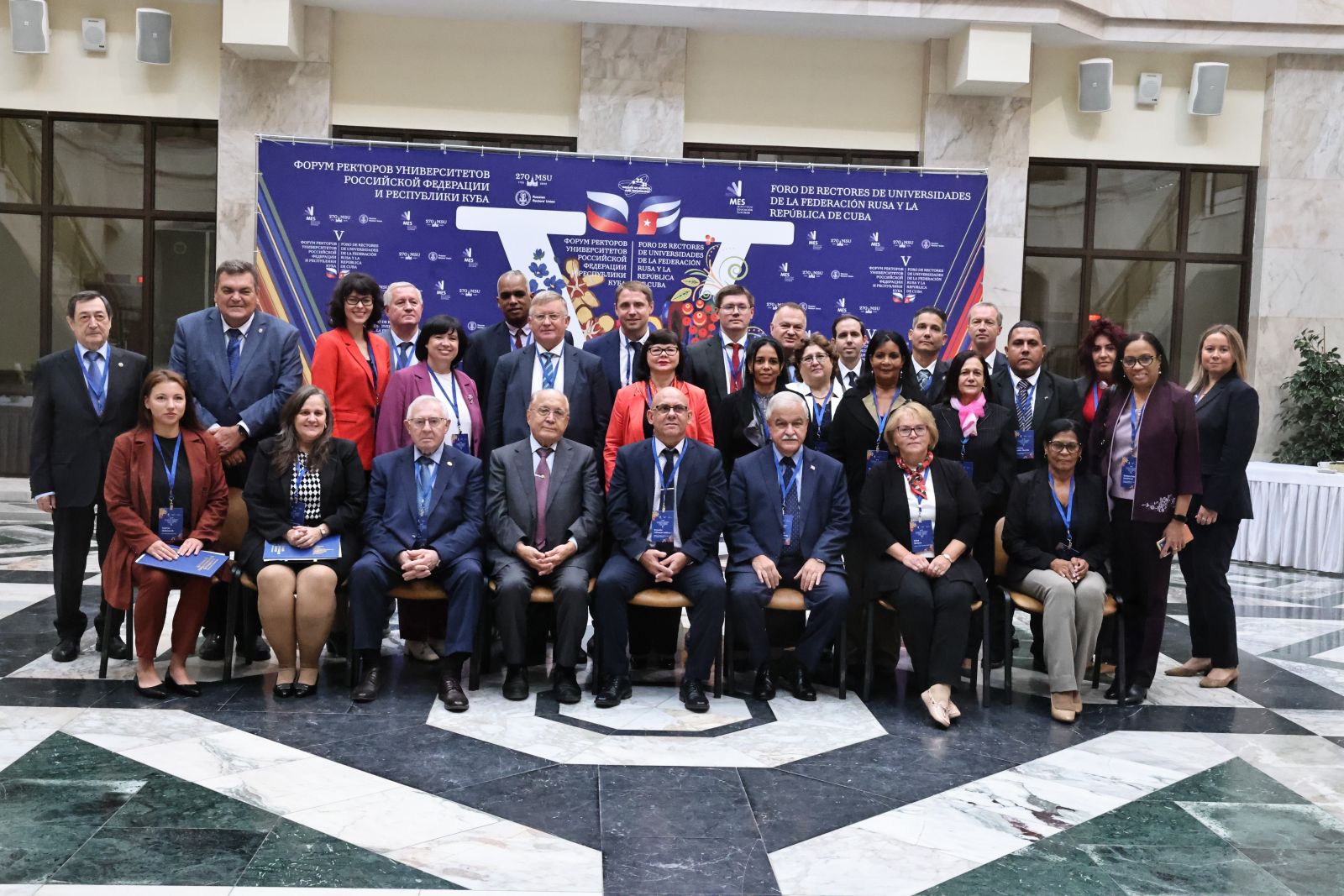SUSU President, Vice-President of the Russian Union of Rectors Aleksandr Shestakov took part in the 5th Forum of University Rectors of the Russian Federation and the Republic of Cuba. The event took place at Lomonosov Moscow State University. The organizers of the 5th Forum of University Rectors of the two countries were the Russian Union of Rectors, Moscow State University and the Ministry of Higher Education of the Republic of Cuba.
The history of relations between Russia and Cuba has developed over decades. In 1963, Fidel Castro visited Moscow State University. This visit marked the beginning of close academic, scientific and educational relations between the USSR and Cuba. Today Russia and Cuba are united by special friendship and mutual support. Sixty years later, representatives of scientific and educational organizations of the two countries met again within the walls of Moscow State University.
The Russian Union of Rectors and Lomonosov Moscow State University contribute to the strengthening of contacts between Russia and Cuba. Scientific and educational ties continue to develop. Russian education is traditionally in demand among Cuban students. About 300 students are obtaining their degrees at Russian universities for free according to a quota from the Russian government.
The forum brought together about 70 participants. These include rectors, representatives of higher educational institutions, scientific and academic community, diplomatic corps and state authorities. Issues of bilateral cooperation in education, scientific research and innovation were discussed. Experts exchanged ideas, initiatives and effective practices. Within the framework of the forum, a program for the development of cooperation for the coming years was presented, agreements and memoranda on interaction between universities in Russia and Cuba were signed.
Aleksandr Shestakov discussed the issues of networking and participation in educational programmes with foreign colleagues. The leadership of Cuban universities were interested in the proposals of the President of South Ural State University.
"Cooperation with Russia is the priority area for our Cuban colleagues. We have a lot in common," says Aleksandr Shestakov. "They also train engineering personnel, develop information technology and innovation, and there are companies that implement their developments. We are, in fact, following the same path − quality of education, communication with consumers, interaction with enterprises. According to the Deputy Minister of Higher Education of the Republic of Cuba, Professor Reynaldo Velázquez Zaldívar, the Havana Technological University is based on the ideas of Fidel Castro and Che Guevara. Every year they send one hundred students to study by state-funded quotas at universities in the Russian Federation. They are interested in innovation and want to develop science in digital production, artificial intelligence and cybersecurity. The Rector of the Technological University of Havana Modesto Ricardo Gómez Crespo said that they have 278 doctors of sciences, 13 research centres, and they cooperate with enterprises that promote their innovative developments to the Cuban market. They are interested in mathematics in the field of ecology. The Rector of the University of Computer Sciences Raydel Montesino Perurena said that they have a technology park, where they implement their projects. They are also interested in cybersecurity, computer science, engineering, construction, transport, food production and energy. The Rector of the University of Cienfuegos Orquídea Urquiola Sánchez said that they want to develop double degree cooperation. They are interested in renewable energy, information technology and competent use of grain. Osiris Aranda Creagh, the Rector of the University of Guantanamo, spoke of their interest in mining, mechanics, metallurgy, energy, and materials science. SUSU is working and achieving success in almost all of these areas. In accordance with the interests of our Cuban colleagues, I asked to prepare adapted presentations for each university and to go into the technological process of negotiations. We need to conduct a dialogue. We can offer online educational programmes and special courses. In addition, our pre-university Russian language courses can be useful for them."
According to Aleksandr Shestakov, SUSU has certain limitations with its current vector of development.
The SUSU President is convinced: "The European and American universities with which we collaborated have dropped out. But science and education cannot be regional. We must be in the international educational and scientific space. We must work with everyone we can."





